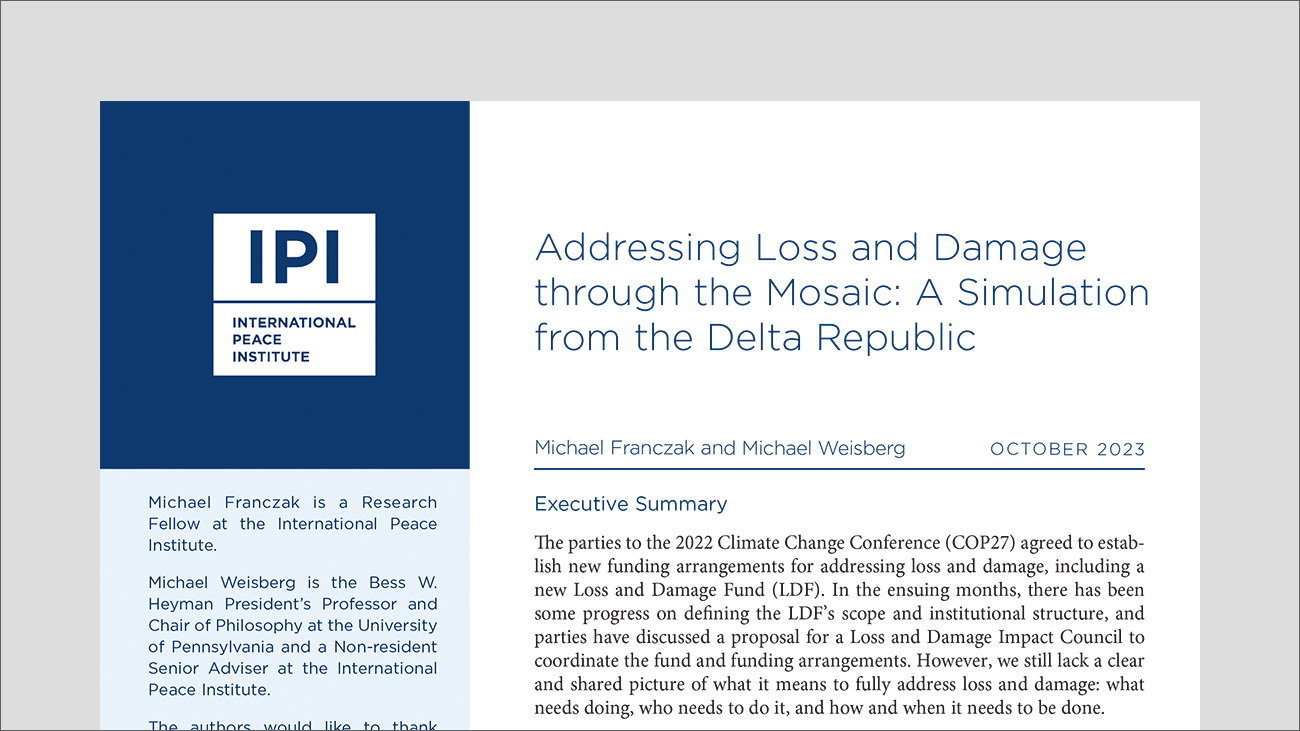
The 2023 UN Climate Change Conference (COP28) takes place amid change and contestation in the global political economy. High prices for food and fuel are still a problem, particularly for countries that are net importers of both. Sovereign debt also remains a challenge due to rising borrowing costs and inaction from major creditors. Meanwhile, the adverse impacts of climate change are rising in scale and intensity and falling disproportionately on the countries least equipped to address them.
In this context, parties to the 2022 Climate Change Conference (COP27) agreed to establish new funding arrangements for addressing loss and damage, including a new Loss and Damage Fund (LDF). The proposal for a fund and funding arrangements coordinated by a Loss and Damage Impact Council presents an opportunity to assemble the mosaic of solutions imagined at COP27. The problem is that we still lack a clear and shared picture of what it means to fully address loss and damage: what needs doing, who needs to do it, and how and when it needs to be done.
This paper is an attempt to imagine a well-functioning and coordinated system—a mosaic—with functions, institutions, and results that deliver stability in the face of adverse climate change impacts. First, the paper presents the scenario of the fictional Delta Republic, which is suffering a slow-onset crisis compounded by repeated extreme events. It then identifies elements of an ambitious but practical response from the system we have, including actions, modalities, actors, and timing. The paper identifies gaps in the response and obstacles to the actions envisaged in the scenario, including but not limited to finance and financial arrangements.
In its conclusion, the paper uses insights gained through the scenario to propose: (1) the purpose of the funding arrangements for extreme and slow-onset events, (2) an initial list of members for a Loss and Damage Impact Council, and (3) potential actions and interventions for the Loss and Damage Fund. Finally, the paper emphasizes the critical nature of a country- or demand-driven approach to the support provided by the LDF, including the use of accredited entities for implementation.







